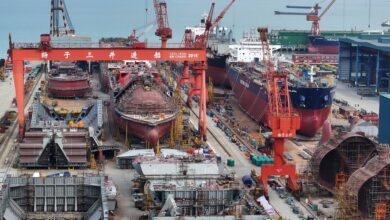
Sri Lanka’s President Stands Firm on IMF Deal Despite Earlier Opposition.
Sri Lanka’s leftist President Anura Kumara Dissanayake has thrown his weight behind the International Monetary Fund (IMF) bailout program, marking a significant shift from his earlier promise to renegotiate the deal. His stance comes after securing a sweeping parliamentary majority following his victory in September.
The South Asian nation had turned to the IMF for a $2.9 billion rescue package after defaulting on $46 billion in external debt in April 2022, during a catastrophic economic crisis.
Foreign exchange shortages led to severe disruptions in food and fuel supplies, triggering widespread protests that eventually unseated then-President Gotabaya Rajapaksa.
The IMF deal, brokered last year, requires Colombo to implement tough measures, including tax hikes, slashing energy subsidies, and restructuring over 50 loss-making state enterprises.
Despite initial resistance, Dissanayake emphasized the fragile state of the economy and ruled out reopening negotiations, stating, “The economy cannot withstand the slightest shock, and there is no room for error.”
The president’s administration is now working to finalize the delayed third review of the four-year loan program, with discussions underway between the finance ministry and an IMF delegation in Colombo. A $330 million tranche is expected to follow once the review is approved.
Dissanayake’s cabinet recently approved a contentious restructuring of $14.7 billion in foreign commercial debt, a critical requirement under the IMF plan. This follows a deal reached in June with bilateral lenders to restructure $6 billion in official credit, although formal agreements remain pending.
Private creditors, holding over half of Sri Lanka’s international sovereign bonds and foreign commercial loans, agreed in September to a 27% reduction in principal and an additional 11% cut in interest.
The president’s decision to uphold the IMF program reflects the urgency of stabilizing the economy, which contracted by 7.8% during the 2022 crisis.
Despite dissatisfaction with traditional politicians over the economic collapse, Dissanayake’s pragmatic approach underscores the challenges of reviving Sri Lanka’s financial health.



